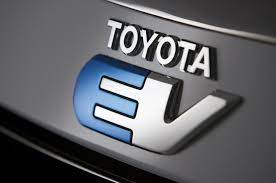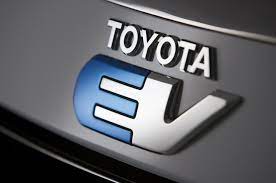
Due to a shortage of resources, battery electric cars (BEV) cannot be the auto industry's sole response to climate change, said Toyota Motor Corp.'s chief scientist on Thursday, warning that focusing on BEVs may encourage some drivers to continue driving polluting vehicles.
Some investors and environmental groups have long chastised Toyota for being sluggish to adopt BEVs, claiming that it has trailed behind Tesla Inc. and others in the face of rising worldwide demand.
The world's largest manufacturer by sales has replied that BEVs are only one alternative, and that gasoline-electric hybrids, such as the pioneering Prius, are a more viable option for some markets and drivers.
Gill Pratt, CEO of the Toyota Research Institute, told reporters that BEVs might help reduce climate change in nations like Norway, which has a lot of renewable infrastructure.
However, in other regions of the world where coal is still used to generate electricity, hybrids are better for CO2 emissions, he adds.
"Battery materials and renewable charging infrastructure will eventually be plentiful," Pratt said in Hiroshima, a day before the start of a Group of Seven leaders summit in the Japanese city.
"But it's going to take decades for battery material mines, renewable power generation, transmission lines and seasonal energy-storage facilities to scale up."
Toyota has frequently claimed that using hybrid and fuel-cell vehicles will be necessary to achieve carbon neutrality. Toyota plans to sell 1.5 million battery-powered cars by 2026 and offer 10 new completely electric models.
Akio Toyoda, the former CEO of Toyota, reportedly pressed the Japanese government to make it clear that it backed hybrid vehicles as much as BEVs or risk losing the backing of the auto sector.
The current chairman of Toyota, Toyoda, told reporters earlier on Thursday that hydrogen and BEVs are both "one very important option" for becoming carbon neutral.
(Source:www.theprint.in)
Some investors and environmental groups have long chastised Toyota for being sluggish to adopt BEVs, claiming that it has trailed behind Tesla Inc. and others in the face of rising worldwide demand.
The world's largest manufacturer by sales has replied that BEVs are only one alternative, and that gasoline-electric hybrids, such as the pioneering Prius, are a more viable option for some markets and drivers.
Gill Pratt, CEO of the Toyota Research Institute, told reporters that BEVs might help reduce climate change in nations like Norway, which has a lot of renewable infrastructure.
However, in other regions of the world where coal is still used to generate electricity, hybrids are better for CO2 emissions, he adds.
"Battery materials and renewable charging infrastructure will eventually be plentiful," Pratt said in Hiroshima, a day before the start of a Group of Seven leaders summit in the Japanese city.
"But it's going to take decades for battery material mines, renewable power generation, transmission lines and seasonal energy-storage facilities to scale up."
Toyota has frequently claimed that using hybrid and fuel-cell vehicles will be necessary to achieve carbon neutrality. Toyota plans to sell 1.5 million battery-powered cars by 2026 and offer 10 new completely electric models.
Akio Toyoda, the former CEO of Toyota, reportedly pressed the Japanese government to make it clear that it backed hybrid vehicles as much as BEVs or risk losing the backing of the auto sector.
The current chairman of Toyota, Toyoda, told reporters earlier on Thursday that hydrogen and BEVs are both "one very important option" for becoming carbon neutral.
(Source:www.theprint.in)














